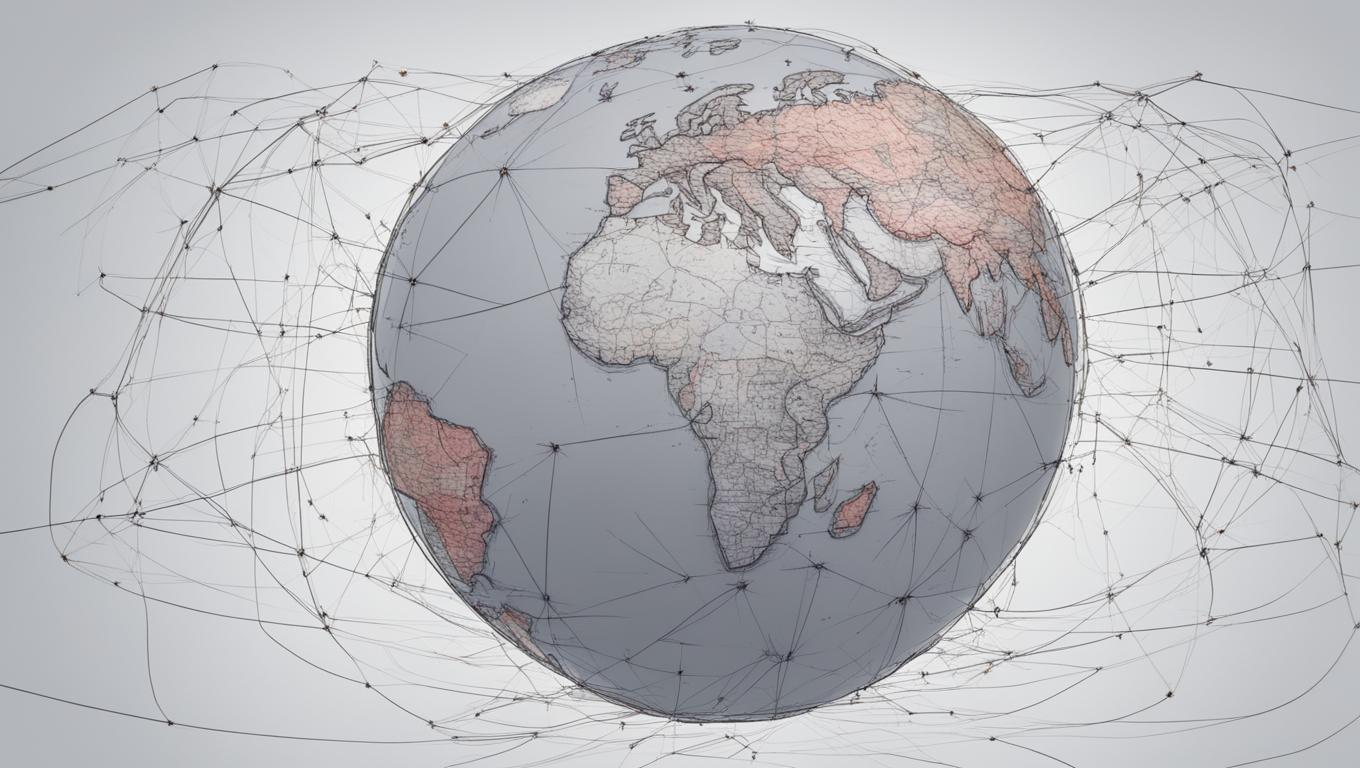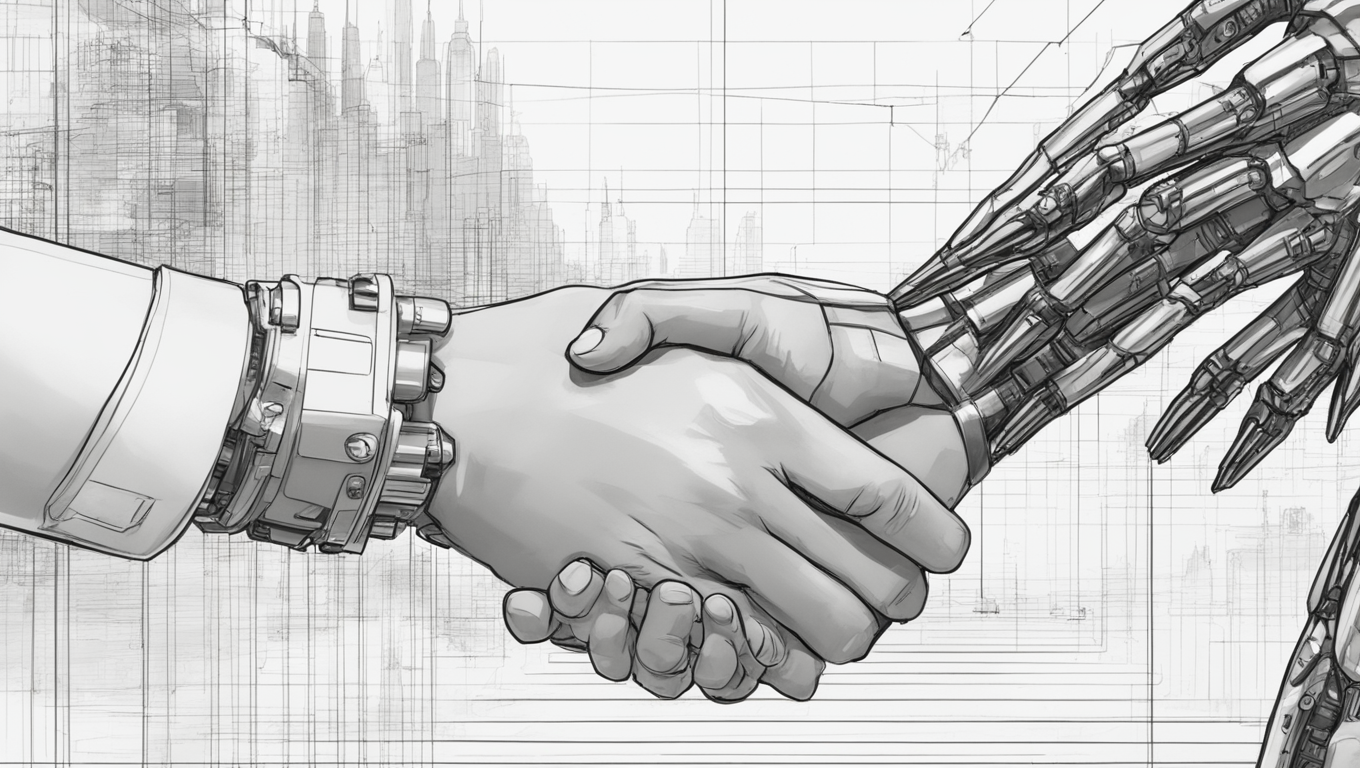Nations around the world are on the brink of a new era of power dynamics, hinged on their ability to harness and manage the development of artificial intelligence (AI). While debates on AI have largely centered around issues such as inequality, job loss, and the potential risks to humanity, there has been less attention given to how AI will impact geopolitics. The rise of AI will introduce a new group of actors into the global stage—AI-enabled machines that possess immense intelligence and potentially disruptive capabilities.
In this age of geotechnopolitics, the way humans perceive their roles in the world and understand their identity will change. Scientific discoveries will emerge in ways that may be beyond human comprehension. The trajectory that the development of AI takes will shape the future world as we know it. To explore the potential scenarios, we engaged with leading experts in technology, policy, and academia, presenting them with different scenarios and gathering their insights.
One possible scenario is the continued dominance of U.S. companies in AI development. The U.S. government has thus far chosen not to heavily regulate the technology, allowing private corporations to drive advancements. However, this approach has resulted in a lag in government personnel’s understanding of AI compared to technology sector engineers. In this scenario, the relationship between the U.S. government and the technology sector remains unchanged, with companies engaged in aggressive data-gathering and social media continuing to be a breeding ground for disinformation.
Another scenario envisions a U.S. government takeover of AI development, driven by concerns of catastrophic consequences. In this case, the U.S. government abandons its light-touch regulation and assumes control over AI development. This results in a monopoly over AI resources and talent, potentially triggering an arms race as other governments scramble to keep up. The balance of power between countries could shift, impacting their economies and ability to incorporate AI into their workforces.
A Chinese surprise scenario explores the possibility of three Chinese organizations—Huawei, Baidu, and the Beijing Academy of Artificial Intelligence (BAAI)—making a major breakthrough in AI. Often overlooked by policymakers, China’s advancements in AI could catch the world by surprise. The country’s ability to absorb substantial government funding, along with its access to vast computational resources and strategic partnerships, enables China to scale AI research at an unprecedented rate. This could lead to concerns from U.S. political and military leaders about China’s potential asymmetric military advantage.
Lastly, a scenario envisions a great power public-private consortium formed through partnerships among governments, global industries, civil society organizations, academia, and research institutions. This consortium aims to rapidly develop and deploy AI while prioritizing trustworthiness, reliability, and robustness. It fosters economic growth alongside the development of equitable, safe, and secure AI systems, setting standards and guidelines for responsible AI use.
The impact of AI on geopolitics will transform the traditional power dynamics between countries and companies. Big technology companies challenge governments in new and invasive ways, influencing local communities and economies. The borderless nature of AI makes traditional control and regulation challenging. AI itself could become a geopolitical actor with motives and objectives that differ from those of governments and companies. The complexity of human-AI interactions presents a unique challenge for managing these relationships effectively.
As we enter an era filled with both enlightenment and chaos, it is crucial to develop strategies to mitigate AI threats. Governments should focus on strengthening resilience to AI by countering cybersecurity threats, enhancing democratic resilience, and developing emergency response options. Policies should go beyond hardware control and encompass liability rules, assessments of AI systems, and controls on the proliferation of highly capable models. Governments and the private sector should partner to improve risk assessments and develop strategic plans for dealing with unexpected AI-enabled catastrophic events.
While the United States currently holds a lead in AI, the consensus among experts is that China is unlikely to produce a major AI breakthrough. However, China could excel in integrating existing technologies into its workflows, potentially surpassing the United States in end-to-end systems integration. Technological innovation will continue to outpace traditional regulation, and governments must keep pace with the private sector’s advancements in AI research.
The future of geopolitics will be shaped by how countries and companies adapt to the transformative power of AI. As AI becomes an increasingly influential force, governments must navigate complex regulatory challenges and steer the development of AI towards the benefit of humanity. With a comprehensive approach to regulation, investments in innovation, and collaboration between governments and the private sector, we can harness the potential of AI and shape a future that benefits all.





Use the share button below if you liked it.